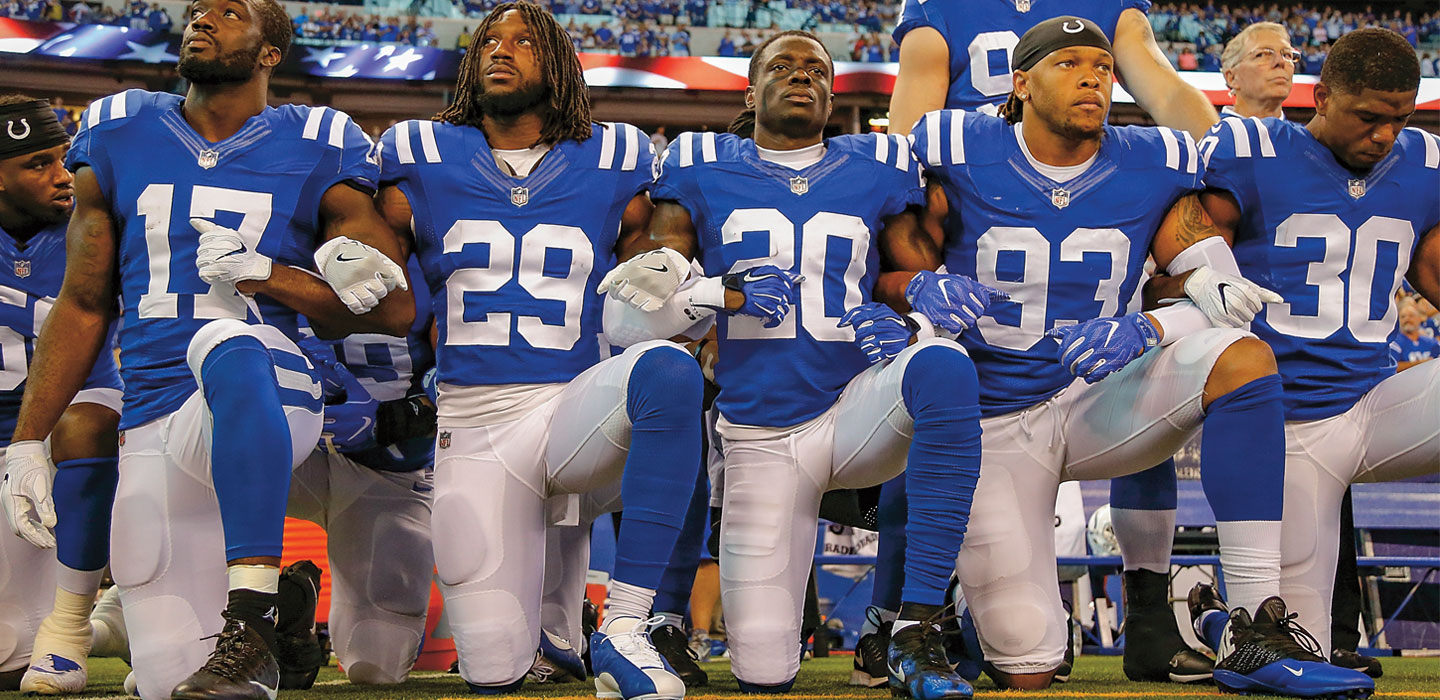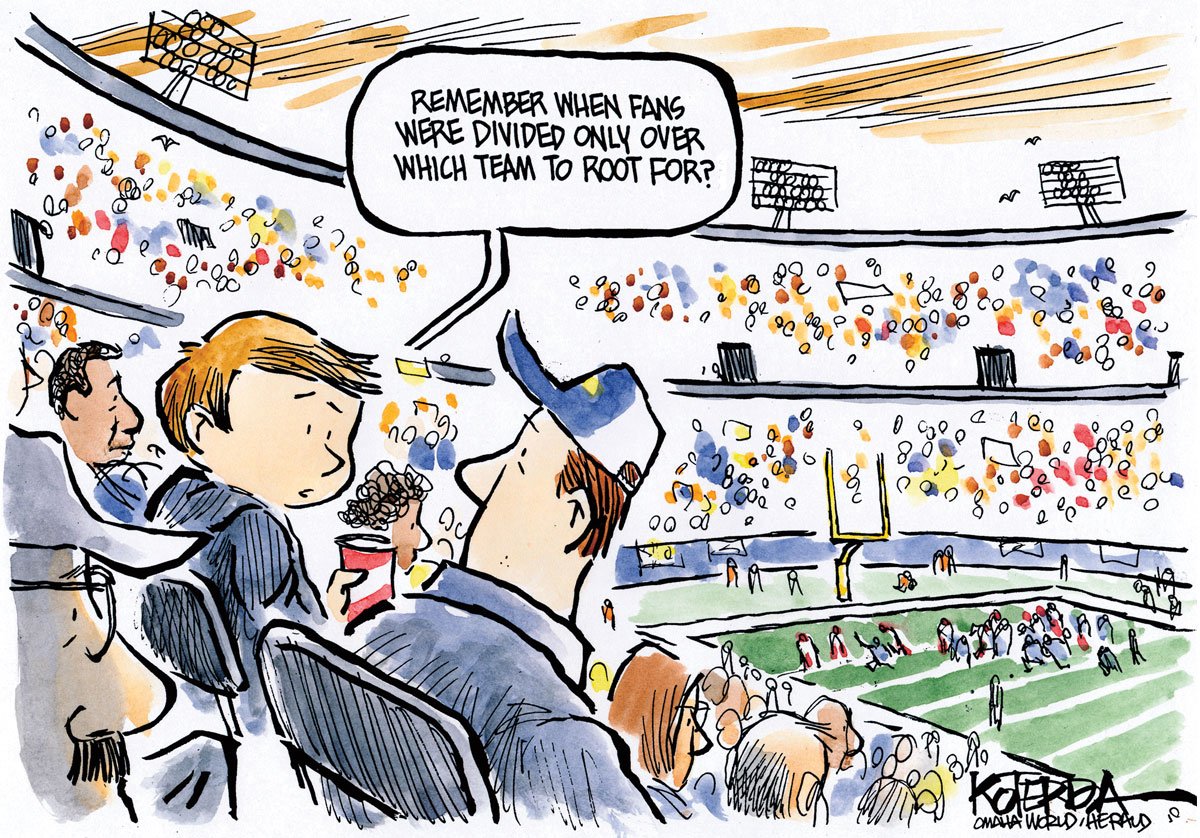The latest season of the National Football League (NFL) hasn’t begun, but it’s already making headlines. In May, the league announced a new policy requiring players to stand and “show respect for the flag” if they go onto the field during the national anthem—or to remain in the locker room until the song is over. Players who don’t comply could face punishment, and their team could be fined. What’s behind the new rule? How have players and fans responded? Read on for answers to those questions and more.
Common Core: RH.6-8.7, RH.6-8.8, RI.6-8.1, RI.6-8.3, SL.6-8.1, SL.6-8.2
C3 (D2/6-8): Civ.1, Civ.6, Civ.9
NCSS: Individuals, groups, and institutions; Civic ideals and practices; Culture




